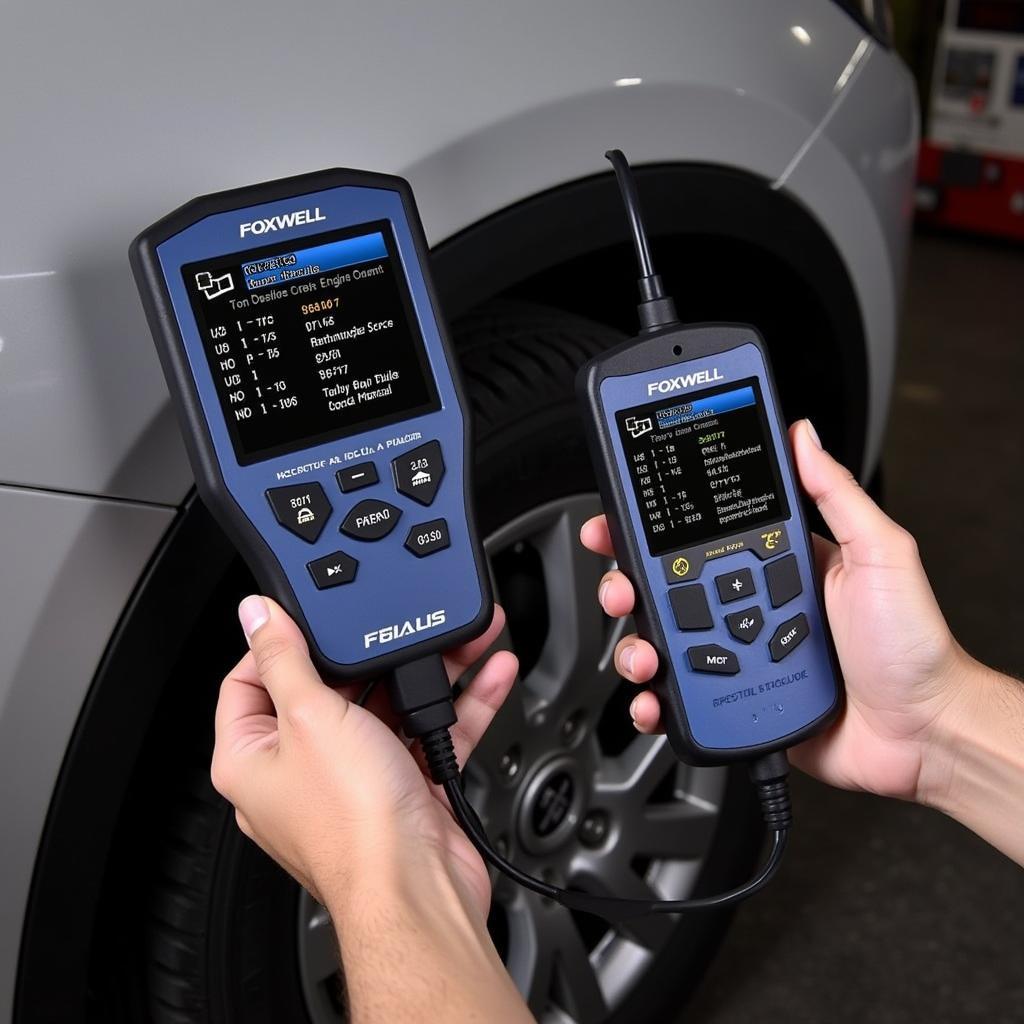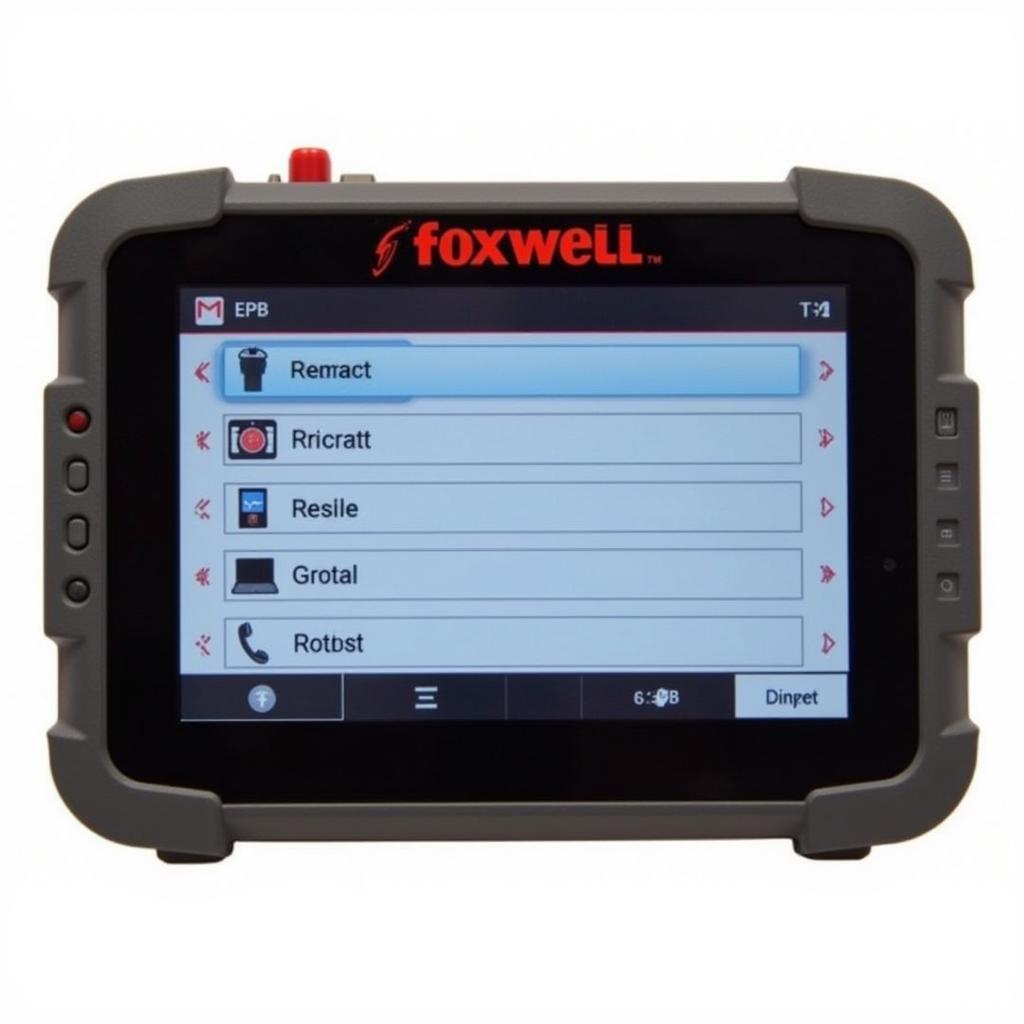The Foxwell BT100 Pro is a popular battery analyzer, but the question “Is Resistance Measured By Foxwell Bt100 Pro Battery Manual?” requires a nuanced answer. While the BT100 Pro doesn’t directly measure internal resistance in the traditional sense, it does provide crucial data that helps assess battery health, which is intrinsically linked to resistance. Let’s explore this relationship in more detail and understand how to use the BT100 Pro effectively.
Understanding Battery Resistance and the Foxwell BT100 Pro
Battery resistance is a critical factor affecting performance. A higher resistance implies reduced efficiency, impacting cranking power and overall lifespan. While some dedicated testers measure internal resistance directly, the Foxwell BT100 Pro takes a different approach. It analyzes key parameters like voltage, CCA (Cold Cranking Amps), and state of health (SOH) to provide a comprehensive picture of battery condition. This information, though not a direct resistance reading, effectively helps determine if a battery is struggling due to high internal resistance.
How the Foxwell BT100 Pro Assesses Battery Health
The BT100 Pro uses advanced conductance testing technology. This method doesn’t require a load test, making it safer and more convenient. By analyzing the battery’s response to a small AC signal, the BT100 Pro can estimate its conductance, which is inversely related to resistance. A higher conductance generally indicates lower resistance and a healthier battery. This method, combined with voltage and CCA measurements, provides a practical assessment of battery health without directly measuring internal resistance.
Interpreting Foxwell BT100 Pro Results
The Foxwell BT100 Pro manual provides guidance on interpreting the test results. A low CCA value compared to the battery’s rated CCA often indicates high internal resistance and a weakened battery. Similarly, a low SOH percentage suggests degradation, potentially linked to increased resistance. By considering these parameters together, you can effectively diagnose battery problems, even without a direct resistance measurement.
Why Doesn’t the BT100 Pro Directly Measure Internal Resistance?
While direct internal resistance measurement provides a specific value, it’s not always essential for practical diagnostics. The BT100 Pro’s approach offers a quicker, safer, and often more insightful way to assess overall battery health. Focusing on conductance, CCA, and SOH gives a holistic view of the battery’s condition, effectively highlighting issues related to high resistance.
Using the Foxwell BT100 Pro for Effective Troubleshooting
The BT100 Pro is a powerful tool for identifying various battery issues, including those related to high resistance. For example, a low CCA reading coupled with a low SOH percentage strongly suggests internal degradation, often caused by sulfation, which increases resistance. This information allows for timely intervention, preventing unexpected starting problems or complete battery failure.
Practical Tips for Using the BT100 Pro
- Ensure proper connection to the battery terminals for accurate readings.
- Consult the Foxwell BT100 Pro battery manual for specific instructions related to your vehicle’s make and model.
- Compare the measured CCA with the battery’s rated CCA to assess its health.
- Pay close attention to the SOH percentage, as it indicates the overall condition of the battery.
“Regular battery testing with the BT100 Pro is a proactive approach to vehicle maintenance,” says John Miller, Senior Automotive Technician at Miller’s Auto Repair. “It allows you to identify potential issues before they become major headaches.”
Conclusion
While the Foxwell BT100 Pro doesn’t directly measure internal resistance, it provides crucial information like CCA, voltage, and SOH, which effectively assess battery health and identify issues related to increased resistance. By understanding how to interpret these results, you can utilize the BT100 Pro for effective troubleshooting and preventative maintenance. For further assistance, contact us at ScanToolUS at +1 (641) 206-8880 or visit our office at 1615 S Laramie Ave, Cicero, IL 60804, USA.


